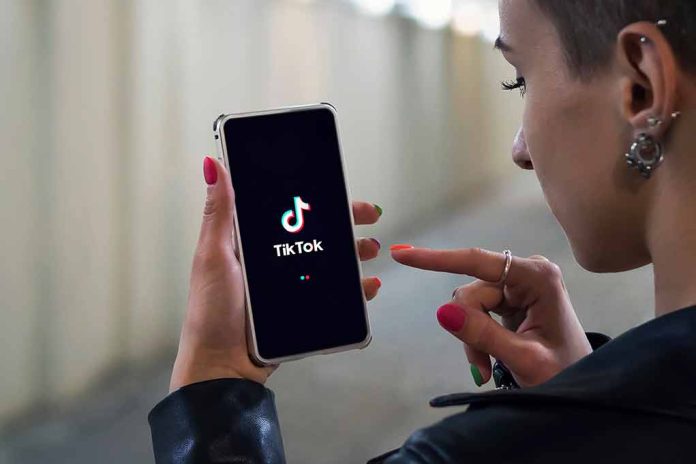
TikTok finds itself under scrutiny as AI-translated Hitler speeches gain traction, raising fresh concerns about moderation on the platform.
At a Glance
- AI-generated Hitler speeches are accumulating millions of views on TikTok.
- Criticism mounts over TikTok’s moderation of hateful content.
- Extremist accounts use coded language to evade detection.
- Comments on these videos range from praise to skepticism.
AI-Translated Hitler Speeches Go Viral
AI-generated translations of Adolf Hitler’s speeches in English are circulating widely on TikTok, amassing millions of views despite the platform’s strict policies against hateful content. Many of these videos, some with attention-grabbing music, have found significant engagement, further complicating moderation efforts.
The troubling trend has caught the attention of watchdog organizations such as Media Matters and Sky News, both of which have criticized the app for its slow and inadequate response in dealing with these videos. TikTok has responded by assuring the public that they are improving detection and removal processes to handle such harmful content more effectively.
Maybe we should skip having AI translating Hitler speeches to reach more humans, you guys. https://t.co/PbKlgfEqtv
— Kendall Brown (@kendallybrown) February 13, 2024
Coded Language and Symbols
Creators of these videos frequently use euphemisms, such as referring to Hitler as “the great painter,” to avoid direct detection by TikTok’s automated systems. Media Matters revealed that TikTok’s search-prompting feature even encouraged searches for Hitler-related content, indicating systemic issues with content management.
“Hateful behavior, organizations and their ideologies have no place on TikTok, and we remove more than 98 percent of this content before it is reported to us,” said Jamie Favazza, a TikTok spokesperson.
Despite these efforts, extremist accounts continue to thrive, using Nazi symbols in their profiles and relying on white supremacist codes. Some comments on these videos praise Hitler, while others express skepticism about the content. This division indicates that the platform’s attempt to moderate this material is not entirely effective.
Short form content is killing this generation man.
A speech like Hitler's can't even be presented in its proper context, and now tiktok and #Histwitter users buy into Hitler's speech and effect as it is and not think about it critically. The post's replies are horrendous. https://t.co/gx15sCWxQY
— Pranプラン (@pran_yt) September 24, 2024
High Engagement and Real-World Impact
Data from various sources reveal the widespread engagement these videos have garnered. One antisemitic video blaming a “small rootless international clique” received over 1.6 million views. In total, more than 70,000 posts use Nazi recordings, collectively gaining over 21 million likes, highlighting the alarming reach of such content.
These trends signify a broader issue of how modern technology is enabling the spread of historical disinformation and hate speech, making it easier for extremist organizations to recruit and galvanize support. Researchers from the Institute for Strategic Dialogue found that creating new TikTok accounts quickly led to algorithmic suggestions of extremist content.
“It sounds like these people cared about their country above all else,” remarked one viewer, demonstrating the potentially dangerous misinterpretations some viewers are developing through these AI-modified videos.
In conclusion, the fusion of AI technology with social media has introduced new layers of complexity to content moderation strategies. TikTok, despite its policies and efforts, faces a crucial test in balancing freedom of expression with the need to curb the spread of hateful ideologies.





